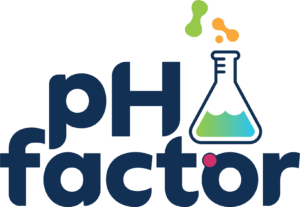Cosmetic regulators ensure that cosmetic products meet quality and safety standards. In Australia, multiple governing bodies set these standards and compliance criteria for cosmetics, and you must follow these requirements during the manufacturing process to avoid legal consequences and keep your customers safe.
These governing bodies will not check your products before you start selling. However, you should always expect your products will be inspected after you go to market. For example, due to the natural way many skin types react to ingredients, there is a high chance that some customers may experience a reaction to one of your products and file a report. In that case, you could face a stiff fine and a product recall if the governing body determines your product was not formulated, advertised, and sold according to the required Australian Standards Criteria.
Cosmetic Regulators in Australia
| AICIS | The Australian Industrial Chemicals Introduction Scheme (AICIS) is responsible for controlling and regulating cosmetics in Australia. Their guidance stipulates specific ways to present and advertise cosmetic products. |
| ACCC | The Australian Competition and Consumer Commission (ACCC) regulates cosmetic labelling and safety standards. To stay compliant, you’ll need to ensure that your cosmetic products are labelled according to the mandatory standard for labelling cosmetic products. |
| ACL | The Australian Consumer Law (ACL) mandates information standards that give consumers specific information about a product to improve their welfare and wellbeing. |
| TGA | The Therapeutic Goods Administration (TGA) regulates therapeutic goods, including vaccines, sunscreens, medical devices, prescription medication, vitamins, minerals, and blood products. You only need to worry about TGA compliance if your cosmetic qualifies as a therapeutic product by claiming to diagnose, treat, or prevent a disease or its symptoms or to have an effect on the skin’s dermis layer. |
Label Legislation
These governing bodies also set the standards on Label Legislation, as labelling plays a key role in the production, advertising and distribution process.
A few products are exempt from labelling legislation—TGA products, cosmetic products manufactured in Australia explicitly for export, free samples of cosmetic products, and testers of cosmetic products.
Everything else must meet the following guidelines:
- Give consumers product ingredient information at the point of sale
- List product ingredients on the product’s primary container
- Display product ingredients clearly and legibly
- Use only the common name of ingredients
- List ingredients in descending order of mass or volume, except for colour additives, which can be listed at the end in any order
If a product’s container does not allow for any of the above regulations, you must display ingredient information prominently. In some cases, such as deodorant or moisturiser, the ingredients are included on the outer packaging.
Top 3 Points For Complying With Australian Regulators
Australian regulators look for many things. Here are three of the most prominent elements they’ll review when looking at your product.
- Cosmetic claims
Because cosmetics are not medicinal, their labels cannot make medicinal claims. For example, you cannot claim that your product will cure acne or eliminate wrinkles if it does not do so. This also includes using non-specific wording such as “hides blemishes” or “smooths wrinkles.” Any claims you make must be backed by substantial evidence.
- Inaccurate certifying bodies
You can only include logos of certifying bodies on your products’ labels if you have genuinely received their certification. Some examples of certifying bodies include cruelty-free, vegan, and organic.
- Label legislation
Your labels must follow the above legislative guidelines to stay compliant and ensure that consumers have access to all the information they need to make an informed decision about whether or not to buy your product.
Bottom Line
Staying compliant with Australian cosmetic regulations can be complicated, but pH Factor is here to help!

